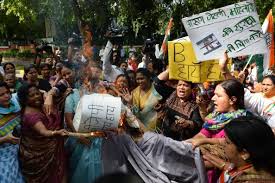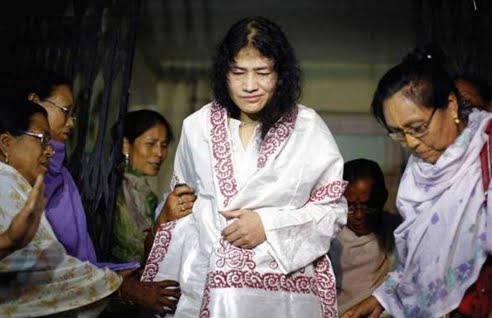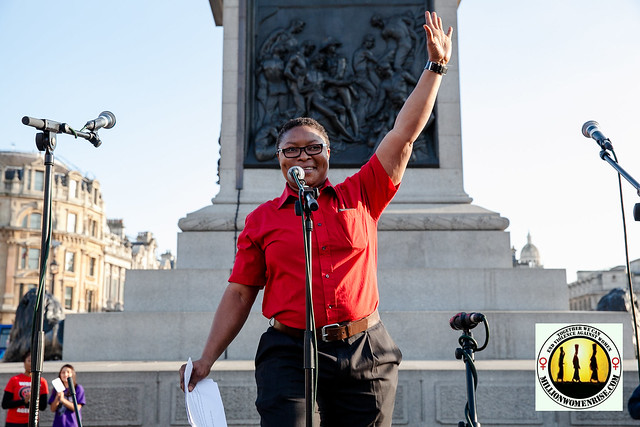
In 2010, in the Colombian Pacific port city and environs of Buenaventura, a small group of women decided that enough was too much. Too many women were suffering violence at the hands of too many armed groups. Too many children were being assaulted. Too much violence was becoming the air and water of everyday life in Buenaventura. And so they set out to create a space of healing. The started a group, a movement really, called “Red Mariposas de Alas Nuevas Construyendo Futuro”. The Network of Butterflies With New Wings Building the Future.
Today, they number around 120. One hundred twenty women go out each day and meet with women and child survivors and organize. They mobilize as they empower, yes empower, the women to, first, resist the violence, both internal and external, and then to turn the swords into ploughshares. This movement began with just a few women, like Gloria Amparo Arboleda and Mery Medina. Today, it includes women organizers and leaders such as Maritza Asprilla Cruz, Fabiola Rodríguez Salazar, Loira Cecilia Rosero, and many others.
Today, the United Nations recognized the Butterflies with the Nansen Refugee Award. In awarding the prize, the UN representative said, “Their bravery goes beyond words.” Yes and no. Their bravery is in words and deeds. As Gloria Amparo Arboleda explained, “Denouncing violence here is a risky business. But somebody has to. Besides, here you risk losing your life whether you put up a fight or not. It’s better to die fighting.”
Here’s how the Butterflies describe themselves: “We are a network of women and organizations that work to defend the rights and quality of life for women in Buenaventura, bringing tools for the eradication of all forms of violence against women. The `Butterflies with New Wings Building the Future’ envisions a Pacific region free of all forms of violence against women, contributing to the formulation of public policy, the formation, investigation and intervention for the visibility and eradication of this problem in the entire zone of Buenaventura.”
The Butterfly women work towards complete transformation. They intend to do more than heal individual women and children, although that would be accomplishment enough, and they have already worked closely with 1000 families in their short four-year history. They aim to transform Buenaventura, Colombia’s new horror capital, into a place of peace that will inform the rest of the country, the national government, every single household in the country, and the world.
Their work is precisely not bravery beyond words. Their work is the work of ordinary women everywhere, who address the violence and, first, say no more, and then work, every day, to heal, to create peace, to build the future … today.

Gloria Amparo Arboleda builds a new future
(Photo Credit 1: United Nations) (Photo Credit 2: BBC / UNHCR / J. Arredondo)


 This past session, Maryland passed anti-shackling bill
This past session, Maryland passed anti-shackling bill 



